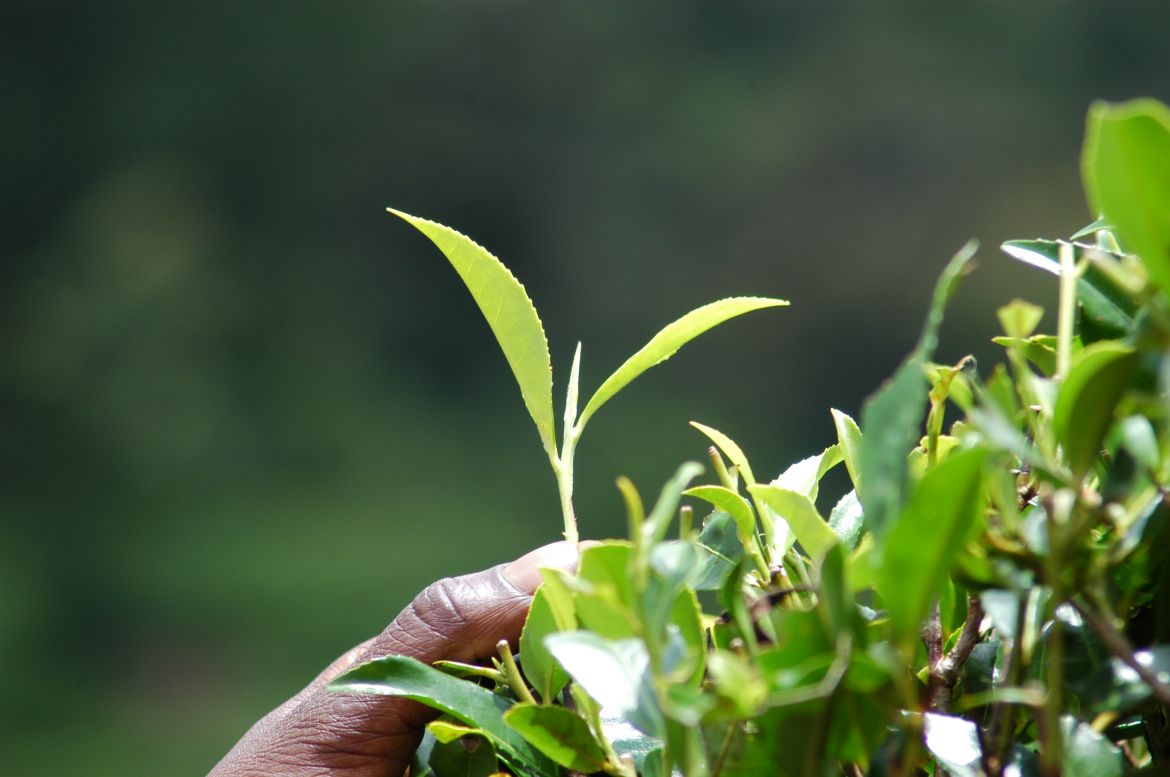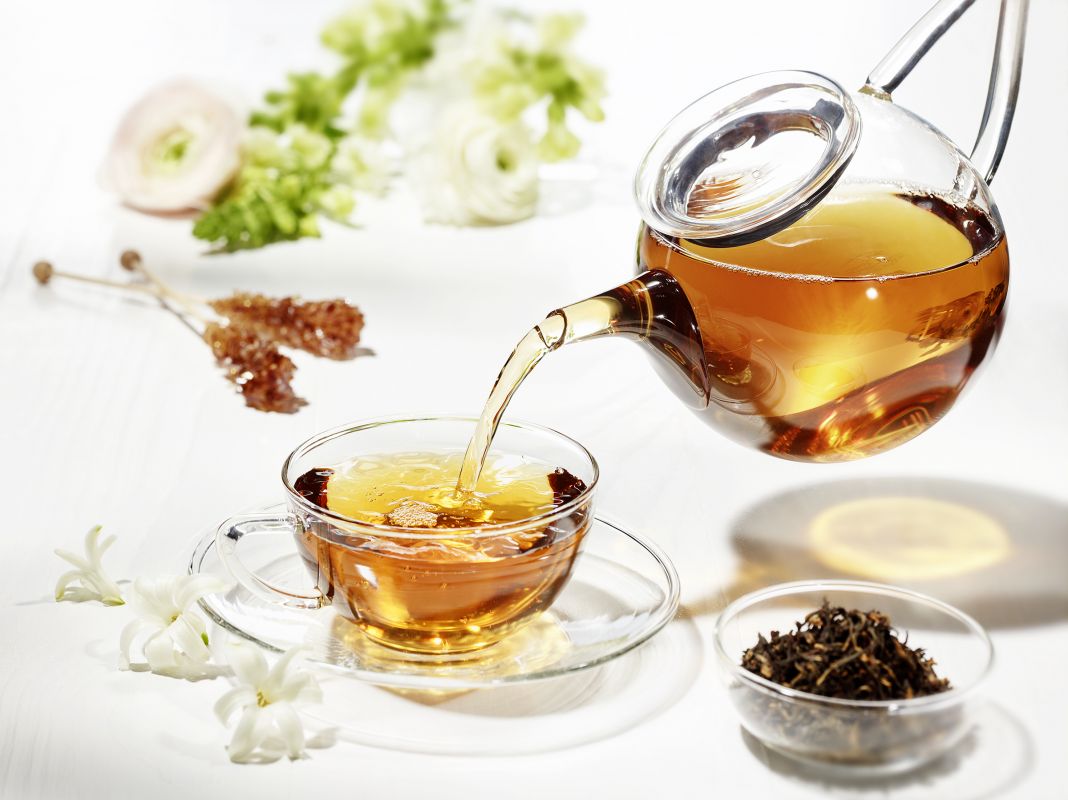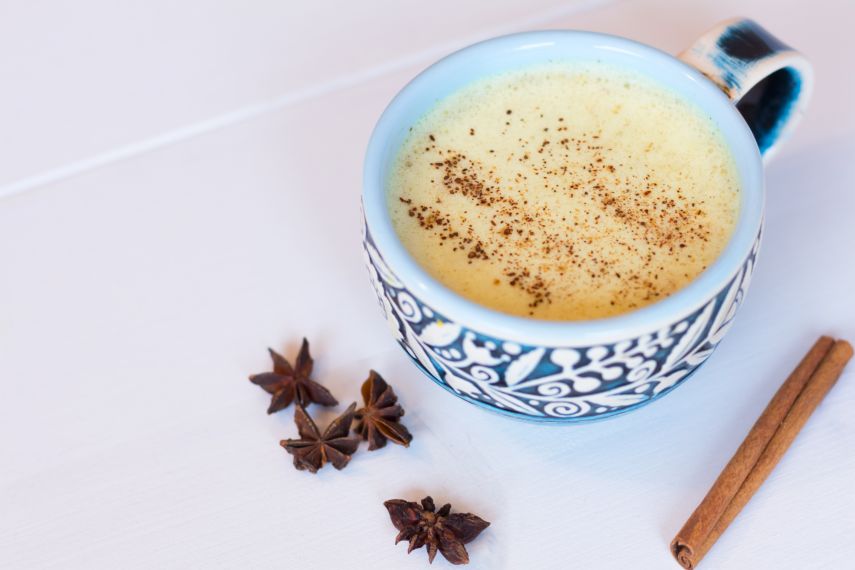The Unique Qualities of Flavoured Black Tea
Expertly crafted blends include rich black teas perfectly partnered with cocoa; vanilla or rose petals. Creations with winter spices and marzipan will become firm seasonal favourites whilst other varieties such asRonnefeldt Irish Malt are a favourite all year round!
At Cup of Tea we offer a versatile range of unique black tea compositions! These delicious flavours are sure to excite the taste buds. Tea can be flavoured in a number of ways - from using oils to blending the tea with real fruit pieces. Only ingredients of the highest quality are used for our aromatic flavoured blends.
Harvesting and Production

Immediately after picking, the fresh tea leaves start their journey through the five stages of traditional tea production:
Withering: Tea leaves are spread out on large withering racks and fanned with warm air for around 12-18 hours. The leaves loose up to 60% of their moisture and a large amount of their volume.
Rolling: Leaves are placed in rolling machines where rotating discs break open the leaf cells in the tea leaves without destroying them. The liquid in the cells oxidizes with the oxygen in the air and fermentation begins.
Oxidizing (Fermenting): the rolling process sets off fermentation which usually takes around 2-3 hours. The leaves take on a coppery red colour and the tea acquires its characteristic aroma. The process of fermentation determines the flavour of the tea; the shorter the process, the fresher the flavour and the lighter the tea in colour.
Drying: The residual moisture is extracted from the tea at 90C in a multi-level dryer and the oxidised cell juice dries on the leaves. This is when tea darkens and becomes black in colour.
Grading: In the final step the tea is graded into 4 different leaf grades using vibrating sieves. This process produces high quality leaf teas, broken teas, fannings and dust.
How to Brew Flavoured Black Tea
Whether you want to use the loose leaves or try a tea bag infusion, the standard process is the same.

The standard process is as follows:
- Boil some freshly poured cold water
- Place the tea leaves in a tea strainer
- Pour the hot water over the leaves
- Steep the tea for the appropriate amount of time
- Strain the tea
- Add a dash of milk to taste, sweeten if required
- Sit back and enjoy!
Brewing Table
 Ranging from 1 rounded teaspoon to 1 slightly heaped teaspoon
Ranging from 1 rounded teaspoon to 1 slightly heaped teaspoon
 3 – 4 minutes
3 – 4 minutes
 A range of colours including: Amber, Golden Brown, Red Golden, Brown
A range of colours including: Amber, Golden Brown, Red Golden, Brown
NOTE: Please make sure to read the individual brewing instructions on each package of tea.
The Unique Qualities of Earl Grey Tea
Earl Grey loose leaf tea is a well-known and refreshing black tea, blended with oil from the rind of the bergamot orange. It is highly aromatic and the perfect accompaniment with afternoon tea. Traditionally made with Chinese black tea, Earl Grey is also now produced using teas from other parts of the world.
Our Darjeeling Earl Grey is blended using an autumnal Darjeeling tea from the foothills of the Himalayas, while our Organic Duke of Grey is based on Assam leaves with their malty and stronger background. We have an Earl Grey tea for everyone!
Harvesting and Production
Earl Grey is most widely defined as a black tea that has been flavoured with the oil of bergamot.

There is no one way to make Earl Grey tea, which is why every Earl Grey tea you've ever tried has probably tasted slightly different. Once the tea leaves have dried at the end of the manufacturing process, the tea is either flavoured or scented with flowers, spices or herbs or sprayed with essential oils or extracts.
History of Earl Grey Tea
Earl Grey is probably the most popular and well-known flavoured tea blend in the world. Several stories, all of which relate to Earl Grey who was British prime minister from 1830 to 1834, have developed over the years to explain the origin of this famous tea.
One myth tells how a British diplomat, while on a mission to China during Earl Grey’s premiership, saved the life of a mandarin and was given the recipe to take home to the prime minister as a symbol of gratitude.
Another version of the story tells that is was Earl Grey himself who saved the Chinese nobleman. Yet another tale tells the tea was a gift presented to Earl Grey at the end of successful diplomatic visit to China.
Whichever story might be true, as far as we believe, despite the Chinese have flavoured their tea with many different extra ingredients over time, bergamot is never mentioned as one of them as it was unknown in China at the time.
If you are ever travelling in Northumberland you may want to visit the home of Earl Grey – Howick Hall – and find out more.
The Unique Qualities of Chai Tea
Commonly known as the national drink in India, the popularity of Chai has spread worldwide over the last few years. In India, it is known as Masala Chai, Masala is the word for spice in Hindi, Chai simply means tea. There is no traditional recipe for Chai, Indian families mix up their own spicy brew, using black tea with milk, sugar, and aromatic spices. Spices like cardamom, ginger, coriander, cinnamon, cloves, fennel, and pepper are most commonly used.
The increase in popularity has led to a range of new variations of Chai. The spices are these days not just married with the original Indian black tea but also green tea and Rooibos to create a warming drink of different kind.

History of Chai Tea
Legends differ on when Chai Tea’s history began, some say it started around 9000 years ago! The first appearance of Chai Tea arrived after 1835 when the British set up tea gardens in India. In the 1900’s vendors used milk, sugar and spices to replace the expensive black tea ingredient and Chai Teas popularity soared. This was due to its inexpensive prices but flavourful taste!





 EARN POINTS WITH OUR LOYALTY SCHEME
EARN POINTS WITH OUR LOYALTY SCHEME






